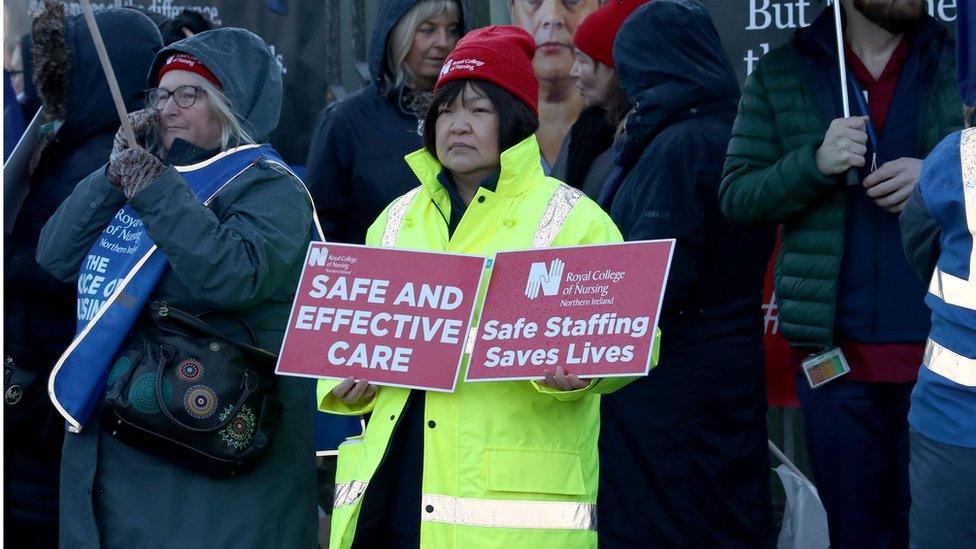Phil Scraton writes open letter after 28-hour A&E wait
- Published
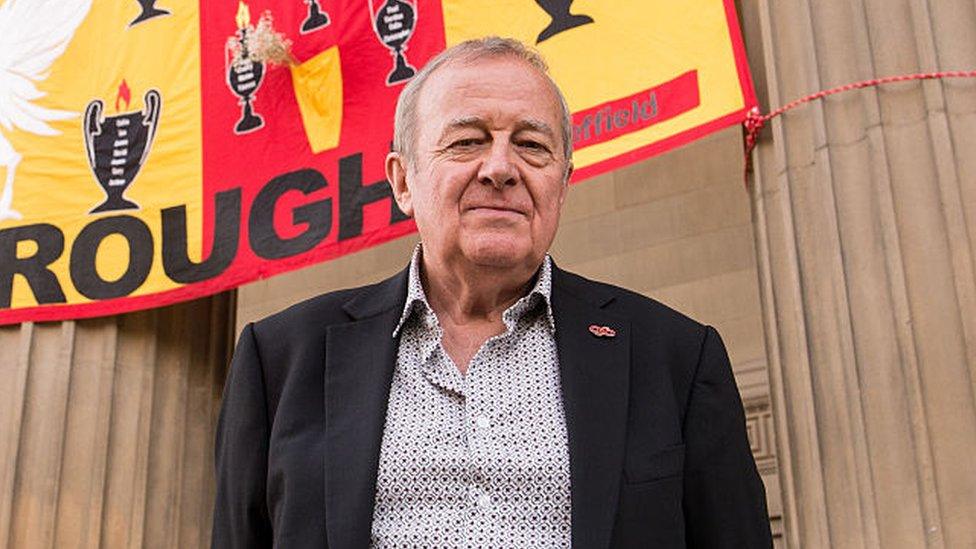
Prof Scraton carried out research into the Hillsborough football disaster
Prof Phil Scraton, known for work on the Hillsborough disaster, has written an open letter to the health minister after spending 28 hours in A&E.
Prof Scraton went to the Ulster Hospital on 7 January after damaging his ribs during a fall related to a chest infection he was suffering.
He was admitted the following day having spent the night on a chair.
The trust apologised to Prof Scraton and said his letter reflected the "huge pressures" staff were under.
In his letter, Prof Scraton asked Health Minister Robin Swann for a guarantee the staffing "deficit" would be made an "immediate objective".
He said it was "evident" from when he arrived that the department at the hospital in Dundonald was "operating over capacity".
Prof Phil Scraton spent 28 hours in A&E
"Patients shared one toilet and hand-basin," the Queen's University law professor said.
"Given its use by so many ill people, it is fair to assume that the conditions compromised appropriate standards of hygiene."
After being admitted, Prof Scraton said "the complex mix of patients" on the ward "diminished any possibility of quality rest".
Although being "exhausted and desperate to return home", Prof Scraton was unable to do so after developing sepsis.
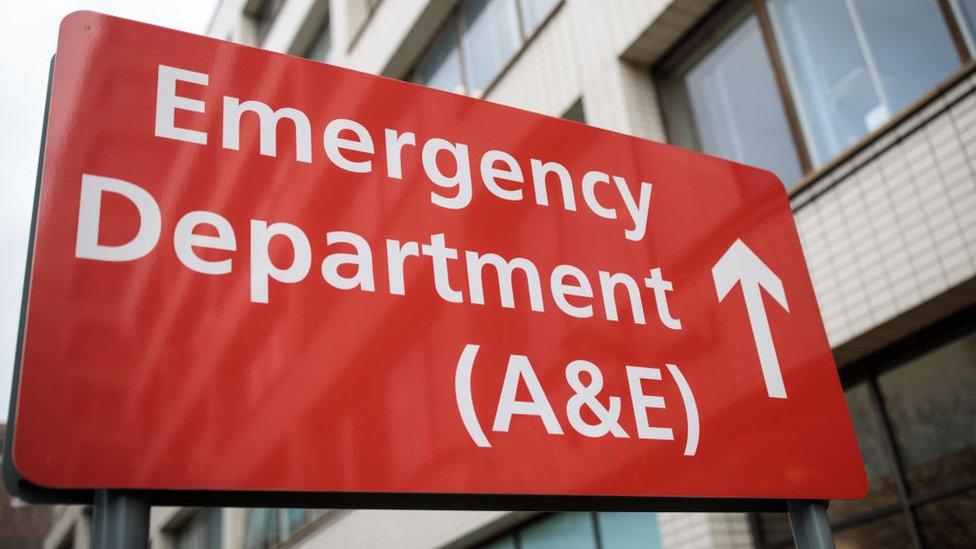
The South Eastern Health and Social Care Trust said major investment was needed to improve capacity.
"As highlighted by Mr Scraton, he received timely, efficient, kind assessment within ED [emergency department], commencing the appropriate treatment, but unfortunately waited a significantly long period for admission to an inpatient area," the trust added.
Nurses took part in strikes calling for pay parity and safe staffing in hospitals during Prof Scraton's stay.
"I supported them fully," he said. "The issues raised are neither recent nor short-term.
"However committed and professional are staff, my experience demonstrates that patient healthcare and safety are continually compromised."
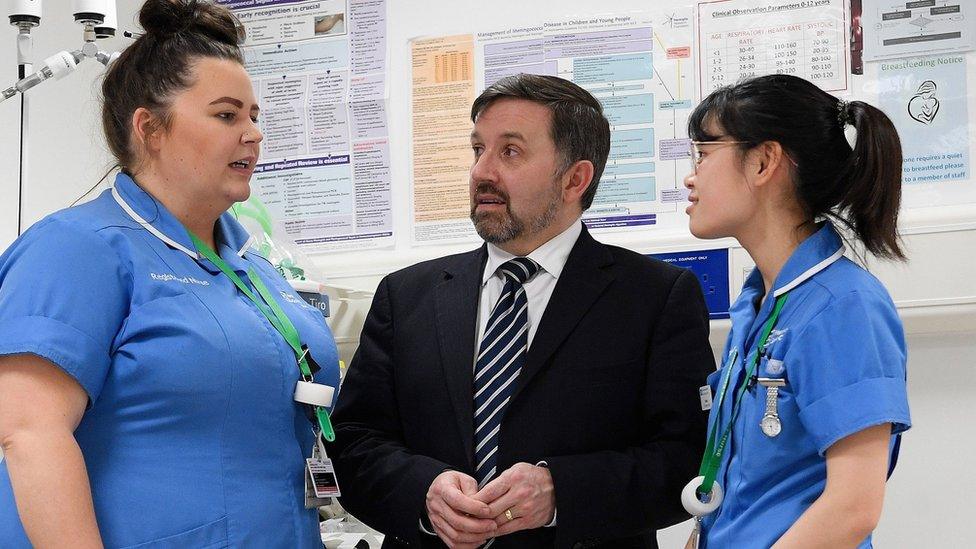
Health Minister Robin Swann visited the Ulster Hospital's emergency department in January
In January it was revealed the number of people waiting more than 12 hours in Northern Ireland's emergency departments had more than doubled in a year.
Health Minister Robin Swann said he was very sorry to hear of Prof Scraton's experiences.
"As I stressed publicly last week, the situation at our Emergency Departments is not acceptable," he said.
"Sustained investment is required alongside reforms to the way services are delivered. There are, unfortunately, no quick or easy solutions.
"The pace at which improvements can be achieved will be heavily influenced by budgetary allocations.
"I can assure everyone that I will leave no stone unturned in my efforts to secure more funding for health."
- Published19 December 2019
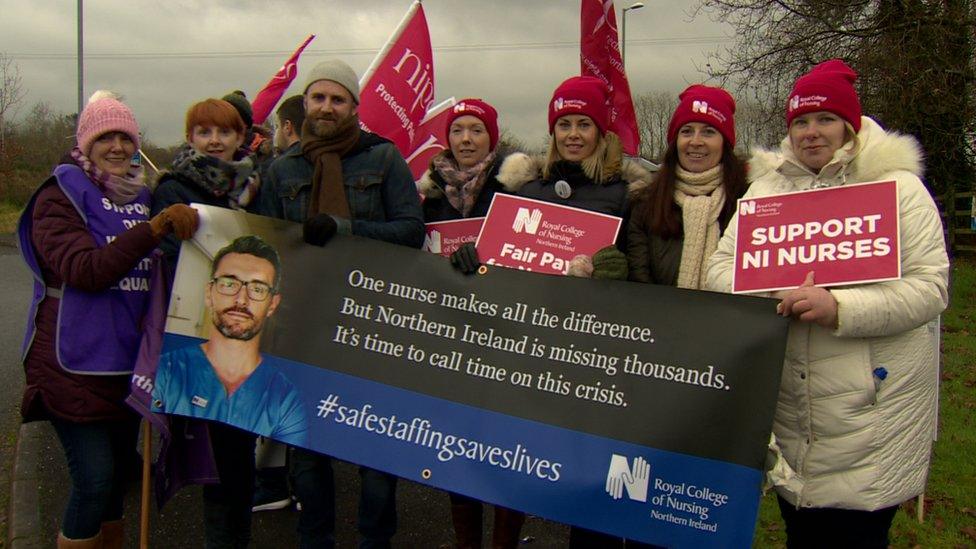
- Published30 January 2020

- Published8 January 2020
